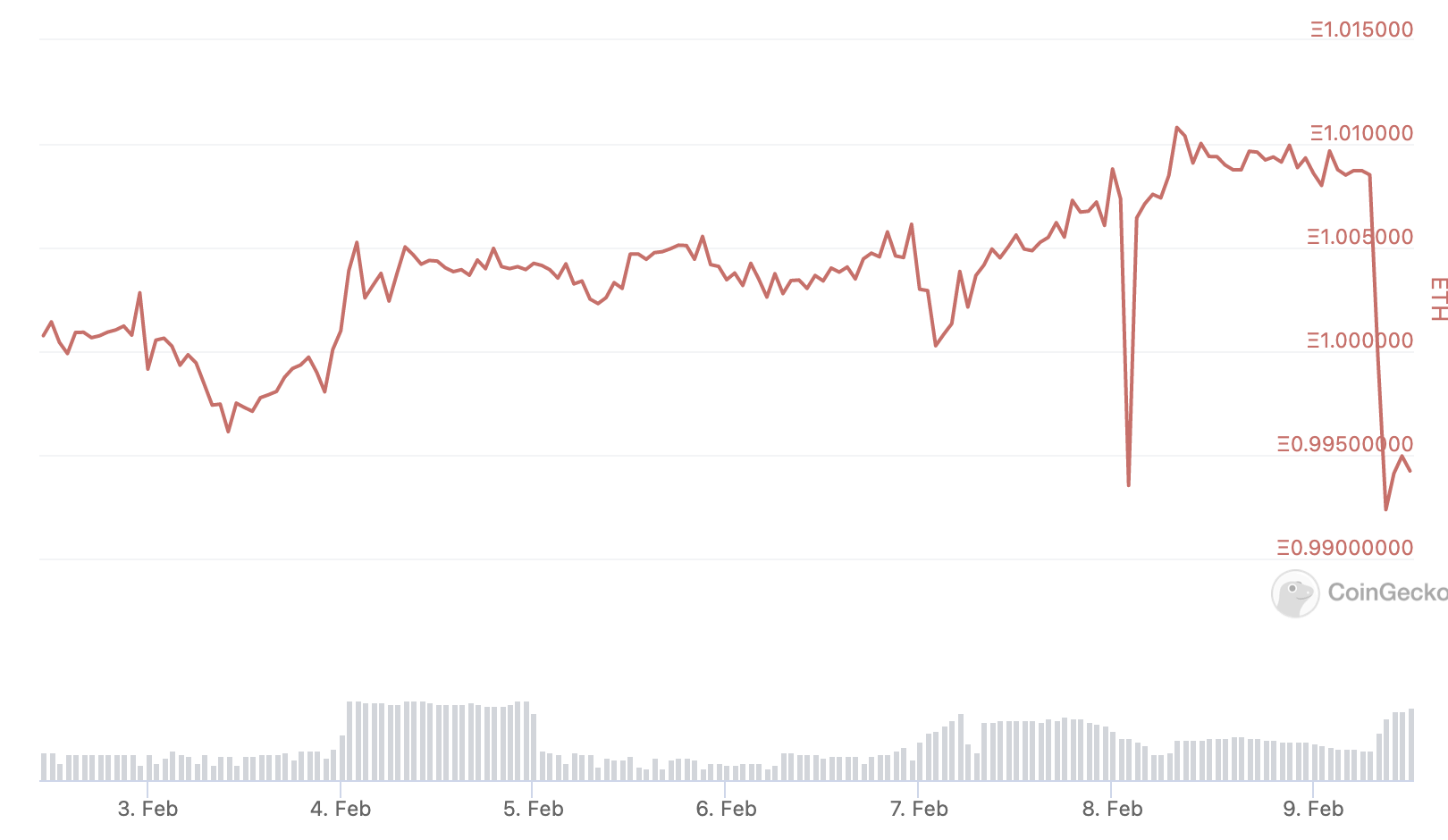On February 9, Coinbase CEO Brian Armstrong stated that the SEC is rumored to intend to cancel the cryptocurrency pledge service for retail investors in the United States.
"We've heard rumors that the US SEC wants to take out retail cryptocurrency staking services in the country. I hope that's not the case because I think it's going to be a dire path for the US if it's allowed to happen," he said. path of."
Armstrong also pointed out that regulation through enforcement does not work. It will encourage businesses to operate overseas, as is the case with FTX. I hope everyone can work together to create clear rules for the industry and come up with smart solutions that protect consumers while maintaining America's innovation and national security interests.
Armstrong also pointed out that regulation through enforcement does not work. It will encourage businesses to operate overseas, as is the case with FTX. I hope everyone can work together to create clear rules for the industry and come up with smart solutions that protect consumers while maintaining America's innovation and national security interests.
As soon as this news came out, the LSD (Liquid Staking Derivatives) track rose in response. The track leader LIDO rose by about 20% (2.5 USDT to 3 USDT) in a short time, and SSV rose by nearly 18% (28 USDT to 33 USDT). With the overall decline of the encryption market, it was pulled back to 2.7 USDT and 32 USDT; while cbETH fell rapidly and fell to a negative premium (as shown in the figure below).
 Andrew, the founder of the encryption research organization X3, also confirmed Brian Armstrong's rumors from the side. He said that "Coinbase was told to reduce encryption pledges, otherwise it will face fines and other stronger blows."
Andrew, the founder of the encryption research organization X3, also confirmed Brian Armstrong's rumors from the side. He said that "Coinbase was told to reduce encryption pledges, otherwise it will face fines and other stronger blows."
And on a more dire note, “Gemini and Kraken are also under investigation by the SEC and facing similar ultimatums. Two top OCC executives resigned because of this stuff, in clear violation of the Administrative Procedure Act.”(Odaily Note: OCC stands for Office of the Comptroller of the Currency, Office of the Comptroller of the Currency.)
latest articleslatest articlesreveals to us a regulatory operation called Operation Choke Point. Targeting the crypto world in the U.S., the move aims to marginalize the industry and cut it off from the banking system.
Nic Carter believes that the U.S. government is using the banking industry to organize a complex and extensive crackdown on the cryptocurrency industry. This plan covers almost all financial regulators and is highly coordinated. Specifically, the Biden administration's current plan involves multiple agencies to prevent banks from dealing with cryptocurrency companies. That includes the government itself, influential members of Congress, the Federal Reserve, the FDIC, the OCC, and the U.S. Department of Justice.
Odaily hereby reminds that the above-mentioned related proposals are unilateral "spoilers" of people in the encryption industry and have not been officially confirmed. Although the market discussion is heated, it cannot be used as a basis for short-term investment. Investors should beware of volatility risks.
Regarding the current U.S. regulatory environment, Odaily also sorted out recent important events related to banking and encryption regulation:
Senators Elizabeth Warren, John Kennedy and Roger Marshall sent a letter to crypto-friendly bank Silvergate on Dec. 6, accusing them of servicing FTX and Alameda Research and slamming them for failing to report the suspicious activity.
On Dec. 7, Signature (one of the most active banks servicing cryptocurrency customers) announced that it intends to halve cryptocurrency customer deposits — in other words, they’ll return money to customers and then close their accounts -- Reduced cryptocurrency deposits from a peak of $23 billion to $10 billion and exited its stablecoin business.
On January 3, the Federal Reserve, the Federal Deposit Insurance Corporation (FDIC), and the OCC issued a joint statement on the risks faced by banks involved in cryptocurrency transactions, without expressly prohibiting banks from holding cryptocurrencies or dealing with cryptocurrency customers. capabilities, but strongly discourage them from doing so on a "safe and sound" basis.
On Jan. 9, Metropolitan Commercial Bank (one of the few banks serving crypto-asset clients) announced the complete closure of its crypto-asset-related verticals.
On January 21, Binance announced that they would only process fiat transactions worth more than $100,000 due to Signature Bank restrictions.
On Jan. 27, the Federal Reserve rejected a two-year application by cryptocurrency bank Custodia to join the Federal Reserve System, citing “safety and soundness” risks.
On Jan. 27, the Kansas City Fed branch rejected Custodia’s application for a master account because the master account would have enabled it to use wholesale payment services and hold reserves directly at the Fed.
On Jan. 27, the Fed also issued a policy statement preventing banks from holding crypto assets or issuing stablecoins and expanding their authority to include state-chartered banks that are not insured by the Federal Deposit Insurance Corporation (FDIC).
On Jan. 27, the National Economic Council issued a policy statement that did not explicitly prohibit banks from servicing cryptocurrency clients, but strongly advised banks not to directly deal with crypto assets, or to maintain exposure to crypto assets. exposure to depositors.
On February 2, the US Department of Justice's Fraud Unit announced an investigation into Silvergate's dealings with FTX and Alameda.
On February 6, Binance suspended USD bank transfers for retail customers (Binance US was not affected).
On Feb. 7, the Jan. 27 Fed statement entered the Federal Register, turning policy statements into final rules without congressional review and without a public notice and comment period.
As of February 8th, Protego and Paxos' application to join Anchorage and gain full approval to become a National Trust Bank is still pending (beyond the 18-month deadline) and looks set to be rejected by the OCC soon.